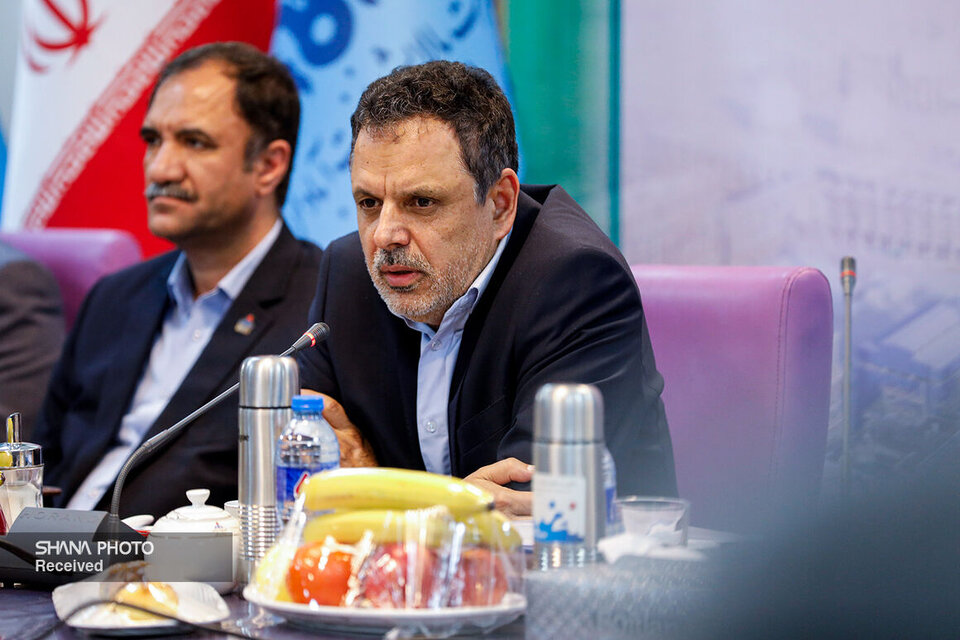Managing director of the National Iranian Oil Refining and Distribution Company (NIORDC), Jalil Salari, made the remarks adding vis-a-vis the challenge of Iran’s rising gasoline consumption, the 13th administration has tried to focus on solving the challenge by deploying mechanisms other than raising prices.
Referring to gasoline consumption figures, he said that in the Iranian year of 1399, which ended on March 20 2020, gasoline production was planned to reach 105 million liters per day but it stopped at 94 million liters. In the meantime, gasoline consumption was expected to reach 105 million liters per day but it stood at 75 million liters which was the result of spreading covid-19 disease. He continued: without covid-19, we could have witnessed imbalances with regard to gasoline consumption in 1399.
According to him, gasoline consumption soared in the Iranian years of 1400, 1401 and 1402 respectively to 91, 104 and 111 million liters per day amid rising gasoline production capacity by 5 million liters per day and distribution of 3 million fuel rationing cards among the vehicle owners.
He noted that this rising trend of gasoline consumption persuaded the 13th administration to put energy conservation on the agenda in a bid to control the rising consumption without resorting to price adjustment.
NIORDC’s managing director said that concerning energy projects it should be said that investment in these projects not only faces some difficulties but the available financial resources are limited and at the same time they don’t yield profit in the short term.
According to Salari, the other reasons behind rising fuel consumption are the existence of a worn-out transportation fleet and fuel diversion, which in case of reforms will lead to falling fuel consumption.
“This trend of rising consumption should be corrected, " he said, noting that to raise oil refining capacity by an additional 5 million liters per day, the oil sector needs to invest 4 billion dollars which is a remarkable amount of money. Instead of this, there is the possibility to manage consumption alongside taking some other initiatives that will reduce fuel consumption without imposing a large cost on the country.” Salari said.
According to him, if worn-out vehicles are removed from the country's transportation system, 9 million liters of fuel per day will be saved, equivalent to 23 thousand billion dollars, indicating the importance of paying attention to the modernization of the transportation road fleet, he said.
Salari continued: If the used transportation vehicles are replaced with new ones, not only the country will save money but will witness stable transportation fares, modernization of road fleet and the possibility of provision of more feed to petrochemical complexes.
“Similarly, if we collect associated gases and stop gas flares, we will be able to save equivalent to 5 billion dollars on a yearly basis." he said.
By monitoring of the transportation sector online and electronicization of bills of lading, there is a possibility to save 10 million liters of gasoline per day, he said announcing based on some reports the country faces fuel smuggling so that each liter of gasoline which is purchased 3000 rials inside the country is being sold 130.000 rials at borders, a huge profit to the benefit of profiteers and smugglers of fuel.
That is why implementation of fuel conservation plans can save money equivalent to 80 percent of the oil exports for the country, he said.
Pointing to high rate of fuel consumption by the power plants, he said the rate of efficiency of power plants stands at 32%, which is very low, the petroleum ministry official said adding that power plants should optimize their fuel consumption in a way that their efficiency to rise to 70 percent and those power plants that cannot adapt themselves with this figure should stop operation.
Deputy minister of petroleum for refining and distribution added that while in the year of 1401, which ended on March 20 2022, the power plants used 240 million liters of liquid fuel per day, the figure has risen to 268 million liters per day this year that in case of 10 percent reduction, it will be a great achievement.
Energy efficiency is at our disposal with very effective methods to enforce it, according to the NIORDC managing director.
last year 93 billion liters of fuel were carried on roads which is expected to rise this year, he said noting even conveyance of 10 percent of the fuel by pipeline will be a considerable saving which the needed money to invest in it is six times less than that of road transportation.
The vehicles of the country use 12 liters of gasoline per 100 km which should be reduced to 4 liters as a world standard of using fuel, and one of the available solutions is to change the basket of existing vehicles so that the percentage of hybrid and electric vehicles to rise, he noted.
Referring to successful experience of using CNG as car fuel, he said that in 1993 it was decided that the percentage of CNG share should be raised to 20 percent in the country’s fuel basket which was implemented and had a very positive impact on fuel conservation


Your Comment